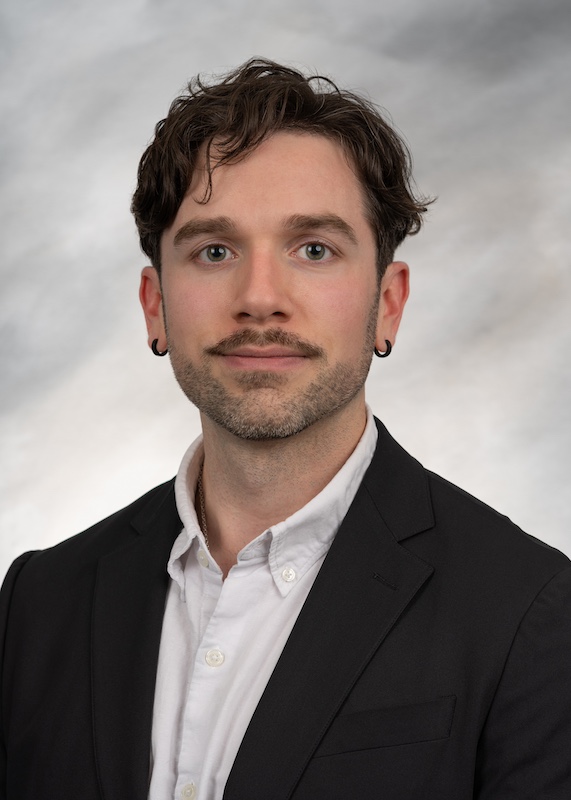Taylor Vensko
Biography
Immunology and Microbiology
Advisor: Dr. Philip Pellett
Education
B.S. in Molecular Biology and Biotechnology from University of Michigan-Flint
M.S. in Immunology and Microbiology from Wayne State University School of Medicine
Office Location
6225 Scott Hall (Pellett lab)
Other Information
Research
My Ph.D. dissertation research focuses on host-virus interactions of Human cytomegalovirus (HCMV) in the context of cellular trafficking, metabolism, and congenital disease.
Research Focus
Human cytomegalovirus (HCMV) is a ubiquitous herpesvirus that reprograms most cellular processes during its replication cycle. Virion assembly is a tightly regulated process that uses cellular trafficking pathways to assemble virion subunits at their respective compartments. HCMV induces a drastic rearrangement of cellular secretory systems and endocytic recycling compartment (ERC) to form the site of virion assembly and maturation: the cytoplasmic virion assembly compartment (cVAC). Fully assembled virions emerge from the cVAC secretory vesicle-like egress pathways, but the molecular and functional identities and regulators of these vesicles are not well understood. Rab proteins are small GTPases that regulate vesicle trafficking. Rabs 3A, 11A, and 27A are involved in outward-bound pathways, and their expression is altered during HCMV infection, but their functional role during virion release is unknown. Using recombinant viruses possessing a Rab3A, 11A, or 27A attached to a FKBP- 12/Shield-1 protein degradation system, we can modify these cellular trafficking pathways in short periods. Measuring infectious virion output during these perturbed periods may illuminate key regulators in the final steps of HCMV egress.
